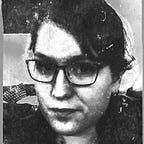A short history of Trans Liberation and the Trans Umbrella
The "trans umbrella" is a coalition of different gender-transgressive groups against anti transgender prejudice and discrimination. It is not an attempt to say that all groups under the umbrella are the same or have the same needs.
In particular, while the idea of "trans" (without a suffix) in Anglo-American trans liberalism has been somewhat colonised by an extremely medical-centric (ie transsexual) view based around the idea of transition, Transgender Liberation as a term was coined by Leslie Feinberg, and as a concept dates even further back. Leslie Feinberg was a non-transsexual butch genderqueer lesbian. Sie lived a large part of hir life as a "passing woman" and a great deal of hir life’s work was trying to forge coalitions between transvestites, transsexuals, drag queens, drag kings, people who would be cursed at in the street as "he-shes" and "shims" and "shemales", regardless of their assigned sex and gender. For Feinberg the point of this coalition wasn’t so much a focus on identity (how you relate to yourself, your sex etc) but about how society treated people outside of policed norms of gender.
Of course the way that people express gender diversity varies hugely. Most DQs are just performance artists and will tend to be pretty safe unless they’re working as door hosts, straight transvestites only cross dress in private or in safe spaces with others but might be vulnerable mainly to being outed and publicly shamed and may even lose their jobs or children in particularly militantly gender policing societies (which has been a fairly serious threat in large parts of Anglo American society until relatively recently and can continue to be problematic in some places!)
Other people may come from cultural gender traditions outside of Anglo-American culture and may or may not identify with "transgender" as a term but the Transgender Umbrella was, by design, open as a coalition to those without attempting to prejudge some shared "trans" essence. There have been critiques of this approach - it can tend towards colonising the gender diversity of people’s who have already been colonised by European cultures, in cases where people try to forge a shared transgender political identity and then apply it to others. In an attempt at trying to build a shared model for coalition and a shared "Transgender history" Feinberg said some things about 2 spirit indigenous Americans and other groups which were oversimplified and worth reading subsequent criticism from colonised people.
All the same the idea of a transgender umbrella and forging a shared political identity open to those who face oppression on the basis of transgressing gender norms (whether through transition or whatever else) remains a really powerful one.
There are also complex factors that emerge in trans history that are not accounted for by a model of "trans rights" that focuses on those who medically transition.
Historically there has been a class divide among *who* is able to transition and who remains "only" a transvestite. There is also a degree to which "transvestite" and "transsexual" are arbitrary medical labels which do not equally get applied to rfab and rmab people and especially do not usefully capture the experiences of genderqueer and nonbinary people. Another thing is that attempts to create these taxonomies of transness can end up being white by default with the "norms" that put you in one class or another being raced and classed and attempts to organise around taxonomic labels effectively becoming white-first trans politics.
Anyway, you can read hir original booklet on Transgender Liberation here:
https://www.workers.org/book/transgender-liberation-a-movement-whose-time-has-come/
Feinberg also wrote a somewhat more matured work on the topic in 1998 called Trans Liberation: Beyond Pink or Blue.
Leslie Feinberg was a Revolutionary Communist and it informed the basis of hir work for building a radical intellectual and street activist transgender movement.
I should also mention that trans studies has a whole range of critique around the limits of "transgender liberation", using an umbrella idea for all forms of oppression for people outside of gender norms etc. I’m pretty sure Vivianne Namaste wrote about it among others. You don’t have to adopt this idea wholesale or without criticism. It’s just, given how there’s so much ignorance about it, it’s important to know what the umbrella is, why it came about and what purpose it serves.
As a slight post script: apologies for archaic uses of language in this essay that might rub people up the wrong way, but I’m trying to get to the roots of the idea and it’s not trivial to translate between it’s history and present day online trans culture, especially when a lot of things have been collapsed into trans at the same time as trans medicalisation has been massively scaled up from what it used to be. There’s a very real language gap between trans radical leftism and the ways common liberal NGOs educate most people to use trans terminology, with differences that are hard to translate clearly.
